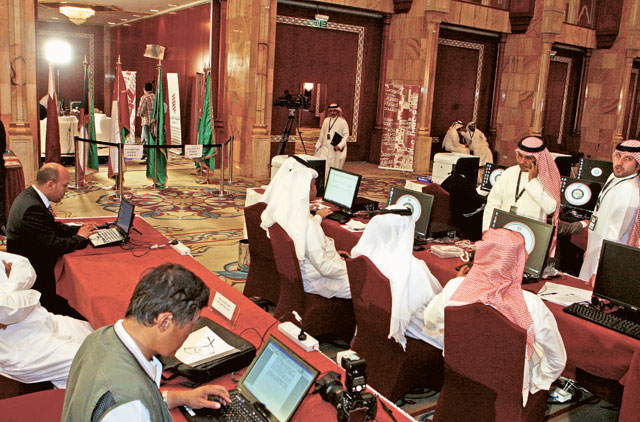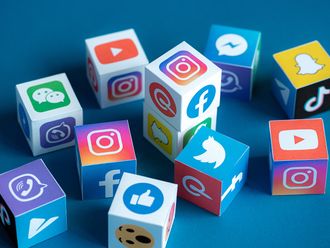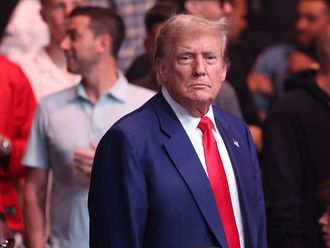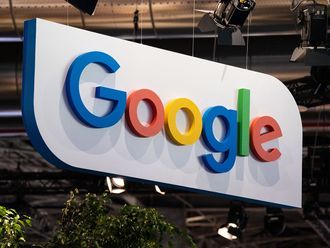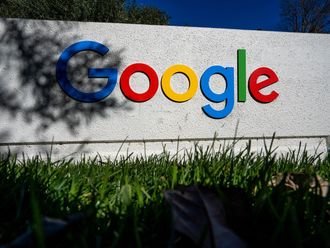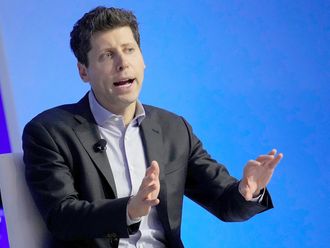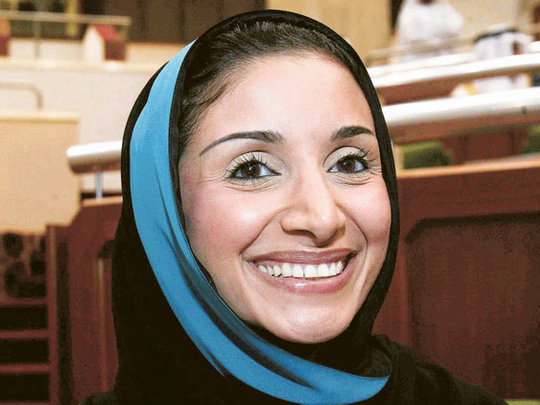
Abu Dhabi: After spending years in government- owned media services and as a member of the Federal National Council, Najla Al Awadhi decided it was time to take on a new role. Thus came into being Najla Al Awadhi Consulting, which offers training to help youngsters sharpen skills required for the mass communications industry, leadership positions and in public speaking.
Al Awadhi — who was previously deputy CEO of Dubai Media Incorporated and general manager of Dubai One TV — says these soft skills are what young Emirati men and women are in need of today.
Gulf News had the opportunity to chat with Al Awadhi about the state of the media in the UAE, the role of women in it, and her status as a business owner.
Gulf News: How would you describe the state of the media in the UAE today?
NAJLA AL AWADHI: I personally would say that you need to compare it relative to the region that we're in and also relative to the age of the industry. It takes time to build a mature industry with mature practices and mature mindsets.
I would say we're certainly not at the pinnacle. Many progressive steps have been taken, but I also believe that many more need to be taken for us to reach a stage where we feel we can really compete globally with our media.
A lot of work is required because when more and more people are turning online for their information, it tells you that television is doing something wrong. If people are turning away from it and turning to the online world — especially the youth demographic who make up the majority and whose mind you can't afford to lose — then something needs to be done differently. It's an indicator for us.
What would you say are the challenges facing women in media today?
Definitely culture has a role to play. If you go into the majority of media companies today and look at who is running them, you'll find it's predominantly men. I want to say it's all men with the exception of two women in different companies. The vast majority of decision-makers in media companies today are primarily men.
That's not a bad thing if competent men are running it, but again it detracts from the enrichment of having diversity in leadership. I would say the challenges are in the corporate cultures that we have in our media companies. Unfortunately they're not really focused on emphasizing on the advancement of women into leadership positions.
Keep in mind that the state ideology or the government in the UAE is very progressive in the sense of empowering women. But how does that ideology get executed within state institutions or private sector? That's a whole other story.
I honestly believe no matter how progressive you are, if you don't turn progressive ideas into policies that are enforceable and that force people to adopt practices. It's not going to happen naturally. So by ensuring that boards have equal representation of women in these media companies, whether the CEO of such and such company doesn't believe in empowering women he has no choice but to adhere to the policies that say you must have women.
It's not about whether you like it or not, it's about creating a culture in our media industry that is conducive of that type of diversity.
Many people didn't think that social media was big in the Middle East until the recent political instabilities and revolutions proved otherwise. How do you think that has changed the way people look at how powerful the tool is today?
They're definitely not saying that anymore. I think the bottomline is that the governments in our region need to accept that when people don't have a legitimate platform to voice their opinion and have a say in government and in the future of their country through legitimate platforms like parliament, then they're going to go on another route which is creating a democratic platform through Twitter, through Facebook and through blogging.
I think it's healthy to have that open debate and that open platform online. But what we would hope for is to have institutions that make people feel empowered and give them a voice in the stake and in the future of their country, so they don't feel the need to go online to revolt and call for protests. You don't want to get to that point of instability.
What's happening in other countries is a sign in the region that it's all about good governance. If there's good governance and a legitimate parliament that speaks on their behalf, they won't protest or go and call for revolutions online. That's the importance of building a legitimate credible and effective parliament in our part of the world so we don't get to a point where the parliament becomes Tahrir Square where people go there to voice their opinions.
You started Najla Al Awadhi Consulting to offer training in mass communication and leadership skills. Why did you decide to take that route?
After ten years of working in government and doing a lot of field work with FNC, it became clear that the biggest challenge we face is the challenge of skillsets and mindsets. Those are two major challenges we face that are clearly being addressed on many levels by the government, but that's not enough.
As far as I see it, individuals can play a role and contribute to that type of progress and address that gap we have in the society.
It's about building confidence, teaching people fundamental skills to advance in your profession, leadership skills that nobody can teach you unless they have experienced it themselves.
I came across a lot of young Emirati men and women graduates, and they had graduated from University, but they still want to learn more about practical skills for moving ahead in the work place, public speaking skills — just a lot of the basic skills that you don't learn in university, but you pick up from work experience.
Those soft skills, I thought, are missing and we don't have a lot of local companies that understand the local mindset and the local challenges and are not purely doing it for profit.
So for me it was: how can I give back, do something that I love and contribute to public service without having to work in government?
At the end of the day I believe in social entrepreneurship and believe it's a great way to develop the employment challenge that the Arab world has.
Have your say:
How do you rate the state of media in the UAE? How important is a woman’s role in the media today?


